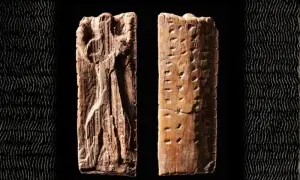Zia Mohyeddin, an artist who defined theatre
3 min readZia Mohyeddin, a beacon for theatre in Pakistan, was known for his master oratory and command over the language: both English and Urdu. His popularity from the days of Pakistan Television (PTV) network is something to be admired and learned.
Speaking with utter perfection, his speech had always been cherished by academicians and book lovers. Seeing him perform or hosting a show was more than a source of entertainment for many aficionados, who even today learn from his work.
Mohyeddin was born on June 20, 1931. He appeared on both Pakistani cinema and television as well as in British cinema and television throughout his career.
He attended the drama school Royal Academy of Dramatic Arts (Rada) – one of the most prestigious institutions in the world. He worked as an actor in the United Kingdom for 47 years and also produced programming for PTV before devoting himself to training theatre artists.
He was famous for his Pakistan Television talk show named after him Zia Mohyeddin Show (1969 – 1973) where he interviewed artists and others. He also appeared in a Hollywood movies Lawrence of Arabia, Behold a Pale Horse (1964), Immaculate Conception (1992) and many more.
He was appointed director of the PIA Arts Academy in 1973, a role he held until 1977.
Despite leaving Pakistan following differences with the military regime of General Ziaul Haq, his love for the country never ended. While working in Britain in the 1980s, he was asked by an interviewer whether he missed Pakistan. He wondered at the reason for the question and replied that of course, he did as it was his home country. He missed his friends there and the people.
As it is said art has no language, he has travelled around the world to give Urdu poetry and prose recitations – the subtle nature of his delivery is loved by many.
He formed the National Academy of Performing Arts in Karachi. He was the president emeritus of the institution, where he recently directed a play on Romeo and Juliet.
His book ‘A Carrot is a Carrot: Memories and Reflection’, launched in 2012, was full of people who made his life meaningful, according to Khaled Ahmad, who had been associated with NAPA for a long.
“Reading his book, I realised he is nothing but what his father carefully nurtured him to become. His father loved classical music and patronised its gifted practitioners. And he taught English and loved the stage. Out of this came Zia Mohyeddin,” he had said at the book launch.
For Mohyeddin, depiction of the human condition was essential in plays whatever genre they belonged.
Professionalism was his main concern – a lacking he wanted to change through formal education.
Many people revere him for the amount of work he has done in the field. Mira Sethi, an actor and writer, shared her experience of working with him for the Urdu adaptation of Shakespeare’s King Lear in 2019.
“When you do, your heart blooms and you contemplate a jump from the highest building at the mad maniacal joy of having received a compliment from Zia Mohyeddin. I walked into his mandir because I wanted to break myself down. I wanted to look at the rotten tics I’d picked up from TV, and discard them. I wanted to strip down my own inhibitions, and have someone scowl, from a near distance, at my incompetence,” she said in a long Instagram post.
In an interview with The Express Tribune, he spoke about his work ethic and how much dedicated he was to his work. “I am a hard-bitten professional. So much so, that I don’t let my family – my wives, regardless of which wife it is – near my work. All I say is, ‘No ma’am, please get aside; this is my professional work’.”
For the latest news, follow us on Twitter @Aaj_Urdu. We are also on Facebook, Instagram and YouTube.

























Comments are closed on this story.